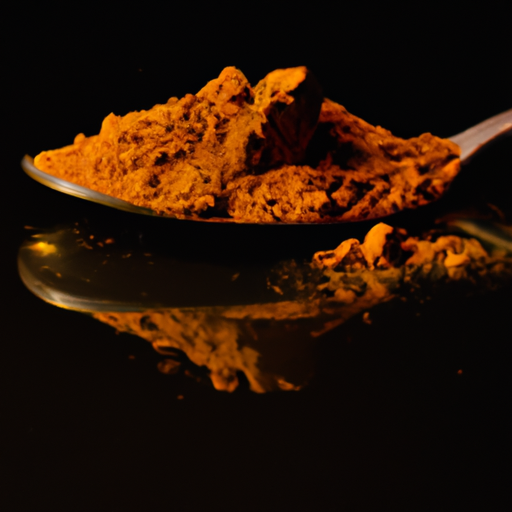I recently learned about the benefits of turmeric tea and decided to do some research to see how it could potentially help me.
It’s made from the root of the turmeric plant, which contains a compound called curcumin that has anti-inflammatory and antioxidant properties. One of the main benefits of turmeric tea is its ability to reduce inflammation in the body. Chronic inflammation has been linked to a number of health problems, including heart disease, cancer, and Alzheimer’s disease.
By reducing inflammation, turmeric tea may help to prevent or manage these conditions. Additionally, turmeric tea has been shown to improve brain function and support heart health. Overall, it seems like there are plenty of reasons to give turmeric tea a try!
Key Takeaways
- Turmeric tea contains curcumin, an anti-inflammatory and antioxidant compound, which can help reduce inflammation in the body and improve heart health.
- It can also reduce pain and swelling in those with chronic inflammation, such as arthritis, and has cognitive benefits, improving cognition and memory.
- Turmeric tea has neuroprotective properties, protecting the brain from damage and degeneration, and can reduce skin inflammation and delay signs of aging.
- However, pregnant women should consult with their healthcare provider before consuming turmeric tea, and it may interact with certain medications, so it’s important to consult with a healthcare provider if taking any medications before adding it to your diet.
Understanding the Science Behind Turmeric Tea
You’re probably wondering how turmeric tea actually works its magic – well, let’s dive into the science behind it!
Turmeric tea is known for its numerous health benefits, and it all boils down to its bioactive compounds, particularly curcumin, which is known for its anti-inflammatory and antioxidant properties. These compounds help to protect the body against oxidative stress and damage caused by free radicals, which can lead to chronic diseases like cancer and diabetes.
Aside from its antioxidant properties, turmeric tea is also known to improve brain function, boost immunity, and reduce the risk of heart disease. It is also said to have anti-aging benefits due to its ability to protect against cellular damage and inflammation.
All in all, turmeric tea has been shown to have numerous benefits, making it a popular beverage for those looking to improve their overall health. Speaking of inflammation, let’s now take a closer look at how turmeric tea helps in reducing it.
Reducing Inflammation
Reducing inflammation can be aided by regularly consuming turmeric tea, which has been shown to have anti-inflammatory properties. Turmeric tea benefits those with chronic inflammation, such as arthritis, by reducing pain and swelling.
Here are four pieces of research evidence to support turmeric tea’s efficacy in inflammation management:
- A study published in the Journal of Medicinal Food found that turmeric extract reduced inflammation markers in patients with osteoarthritis.
- Another study published in the European Journal of Pharmacology found that curcumin, the active ingredient in turmeric, reduced inflammation and pain in rats with arthritis.
- A randomized controlled trial published in the Journal of Clinical Psychopharmacology found that curcumin reduced inflammation markers in patients with major depressive disorder.
- A review of studies published in the Journal of Alternative and Complementary Medicine found that curcumin had anti-inflammatory effects in various chronic diseases.
To achieve the dosage for inflammation management, it’s recommended to consume 400-600mg of turmeric curcumin daily. However, it’s important to note that turmeric supplements may interact with certain medications, so it’s best to consult with a healthcare provider before starting a turmeric regimen.
Moving on to the next section, turmeric tea has also been found to boost brain function.
Boosting Brain Function
Looking to enhance your brainpower? Turmeric tea has been shown to have cognitive benefits, making it a great addition to your daily routine. Studies have found that turmeric contains a compound called curcumin, which has been linked to improving cognition and memory. In fact, one study showed that participants who consumed curcumin supplements had significant improvements in their working memory and attention span compared to those who didn’t.
Additionally, curcumin has been shown to have neuroprotective properties, meaning it can help protect the brain from damage and degeneration. This is especially important as we age and our cognitive function naturally declines. So, whether you’re looking to boost your brainpower for work or school, or simply want to support your brain health long-term, consider incorporating turmeric tea into your daily routine for cognitive enhancement.
When it comes to overall health, supporting heart health is crucial. One way to do so is by incorporating certain foods and beverages into your diet, which we’ll explore in the following section.
Supporting Heart Health
To keep your heart healthy, it’s crucial to incorporate certain foods and beverages into your diet. One simple way to do so is by drinking turmeric tea, which has been shown to have numerous cardiovascular benefits, including reducing inflammation and improving blood flow.
Here are some dietary recommendations to support heart health that can be achieved by regularly drinking turmeric tea:
- Incorporate anti-inflammatory foods, such as fruits and vegetables, into your diet.
- Limit your intake of processed foods, which can be high in unhealthy fats and sugar.
- Choose lean proteins, like chicken and fish, over red meat.
- Avoid excessive alcohol consumption, which can lead to high blood pressure and other heart-related issues.
Incorporating turmeric tea into your daily routine can be an easy and delicious way to help support heart health. So, how can you make sure you’re enjoying it to the fullest?
Enjoying Turmeric Tea
I love making turmeric tea because it’s a delicious way to support my heart health. To make it, I simply boil water, add turmeric powder or grated fresh turmeric, and let it steep for a few minutes.
There are also many ways to add flavor variations to the tea, such as adding ginger, honey, or lemon. However, it’s important to be aware of potential precautions and side effects, such as interactions with certain medications and the risk of stomach upset if consumed in large amounts.
How to Make Turmeric Tea
First, let’s gather the ingredients for making turmeric tea. Making turmeric tea is a simple process that requires only a few ingredients. The main ingredient is, of course, turmeric. You will also need water, black pepper, honey, and ginger (optional). Here’s a table that summarizes the ingredients and their benefits:
| Ingredient | Benefit |
|---|---|
| Turmeric | Anti-inflammatory, antioxidant, and immune-boosting properties |
| Black pepper | Enhances turmeric’s bioavailability |
| Honey | Adds sweetness and has antibacterial properties |
| Ginger | Adds flavor and has anti-inflammatory properties |
Turmeric tea is known for its various health benefits, including reducing inflammation, improving brain function, and preventing chronic diseases. There are also different varieties of turmeric tea to try, such as turmeric ginger tea, turmeric chai tea, and turmeric lemon tea.
Now that we have gathered the ingredients, let’s move on to the next section about flavor variations and recipe ideas.
Flavor Variations and Recipe Ideas
Get creative with your turmeric tea by trying out different flavor combinations to suit your taste buds. Adding a squeeze of lemon gives a citrusy kick to the tea, while adding a dash of cinnamon can make it feel warm and cozy. You can also try adding ginger, honey, or black pepper to your turmeric tea for a unique flavor experience.
Aside from its delicious taste, turmeric tea also offers numerous benefits for the skin. The anti-inflammatory and antioxidant properties found in turmeric can help reduce skin inflammation, redness, and blemishes. Regular consumption of turmeric tea can also help improve skin elasticity and delay the signs of aging.
However, as with any natural remedy, it’s important to exercise caution and be aware of any possible side effects or interactions with medication.
Precautions and Possible Side Effects
Now that we’ve explored the different flavor variations and recipe ideas for turmeric tea, let’s talk about some precautions and possible side effects of consuming it. As someone who’s a big fan of turmeric tea, I always make sure to educate myself on any potential risks associated with its consumption.
Firstly, it’s important to note that pregnant women should consult with their healthcare provider before consuming turmeric tea. While it’s been traditionally used to alleviate morning sickness and improve digestion during pregnancy, there isn’t enough research to determine its safety for expecting mothers.
Additionally, turmeric tea may interact with certain medications, such as blood thinners, so it’s important to consult with a healthcare provider if you’re taking any medications before adding turmeric tea to your diet. To further understand the precautions and possible side effects, here are some important points to keep in mind:
- Turmeric tea may cause stomach upset and diarrhea in some people, especially in large doses.
- The active ingredient in turmeric, curcumin, may have blood-thinning properties and should be used with caution if you’re already taking blood thinners.
- Turmeric tea may interact with certain medications, including chemotherapy drugs, statins, and diabetes medications.
By being aware of these precautions and possible side effects, you can make an informed decision about whether or not to incorporate turmeric tea into your diet. As with any new addition to your diet, it’s always a good idea to consult with a healthcare provider before making any changes.
Frequently Asked Questions
What is the best time of day to drink turmeric tea?
I find that drinking turmeric tea in the morning helps me start my day off on the right foot. For an evening cup, I enjoy adding ginger and honey for a soothing and relaxing bedtime drink. Experiment with different recipes to find what works best for you.
Can turmeric tea help with weight loss?
I’ve found that turmeric tea benefits weight loss efforts. Studies show that curcumin, the active ingredient in turmeric, can increase metabolism and reduce inflammation, leading to potential weight loss effects.
Is it safe to drink turmeric tea while pregnant or breastfeeding?
When it comes to turmeric tea during pregnancy or breastfeeding, it’s best to speak with a healthcare provider. While turmeric has potential health benefits, it’s important to ensure safety for both mother and baby.
How long should I steep turmeric tea for optimal benefits?
To get the most out of the benefits of turmeric tea, I recommend steeping it for at least 10 minutes. This allows the curcumin, the active ingredient in turmeric, to fully infuse into the water and provide its anti-inflammatory and antioxidant properties.
Can turmeric tea interact with any medications?
I should be cautious when consuming turmeric tea if I’m taking medications. There are potential drug interactions and side effects, such as increased bleeding risk. It’s best to consult with a healthcare provider before consuming turmeric tea.
Conclusion
In conclusion, I’m convinced that turmeric tea is a great addition to my daily routine. Not only does it reduce inflammation and boost brain function, but it also supports heart health. The scientific evidence behind the benefits of turmeric tea is compelling, making it a valuable tool in maintaining overall health and wellness.
Symbolically, turmeric represents the golden spice of life. It’s been used for centuries in Ayurvedic medicine to promote vitality and longevity. By incorporating turmeric tea into my daily routine, I’m embracing the power of this golden spice and its ability to enhance my physical and mental wellbeing.
So let’s raise a cup of turmeric tea to our health and happiness!










